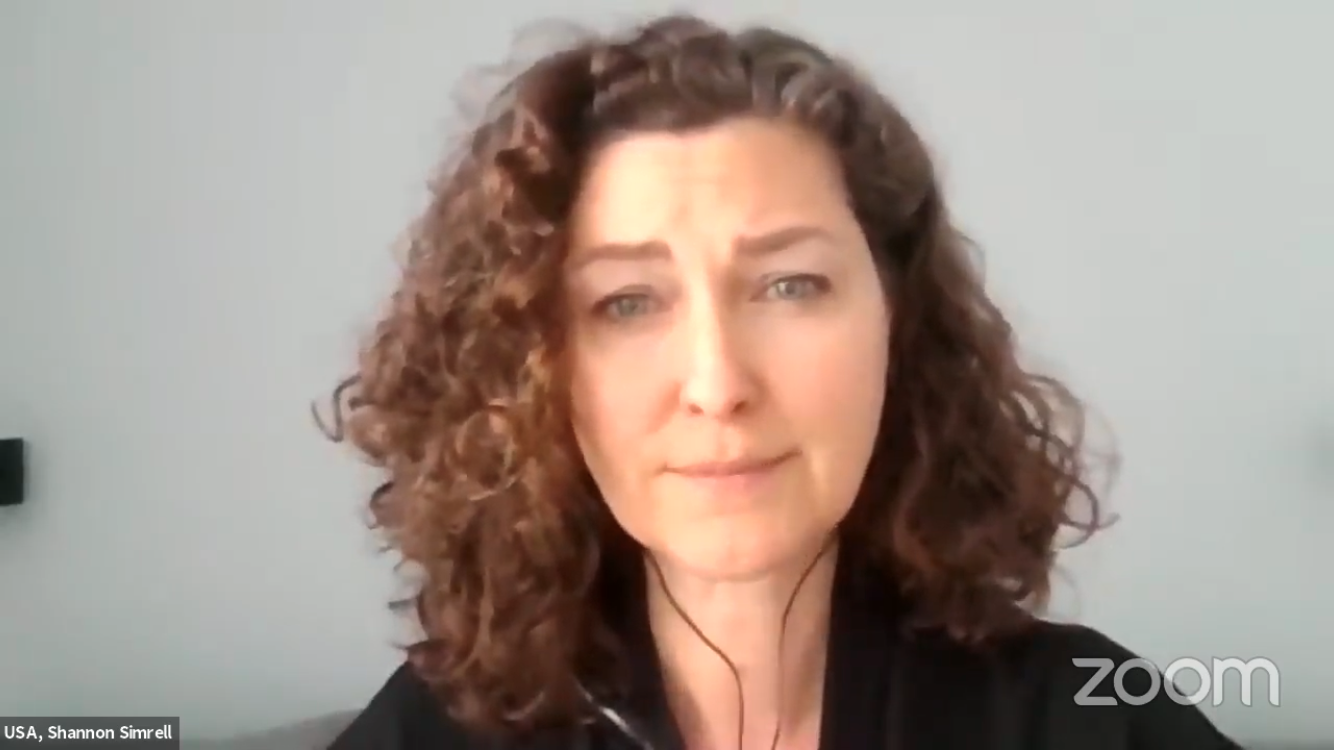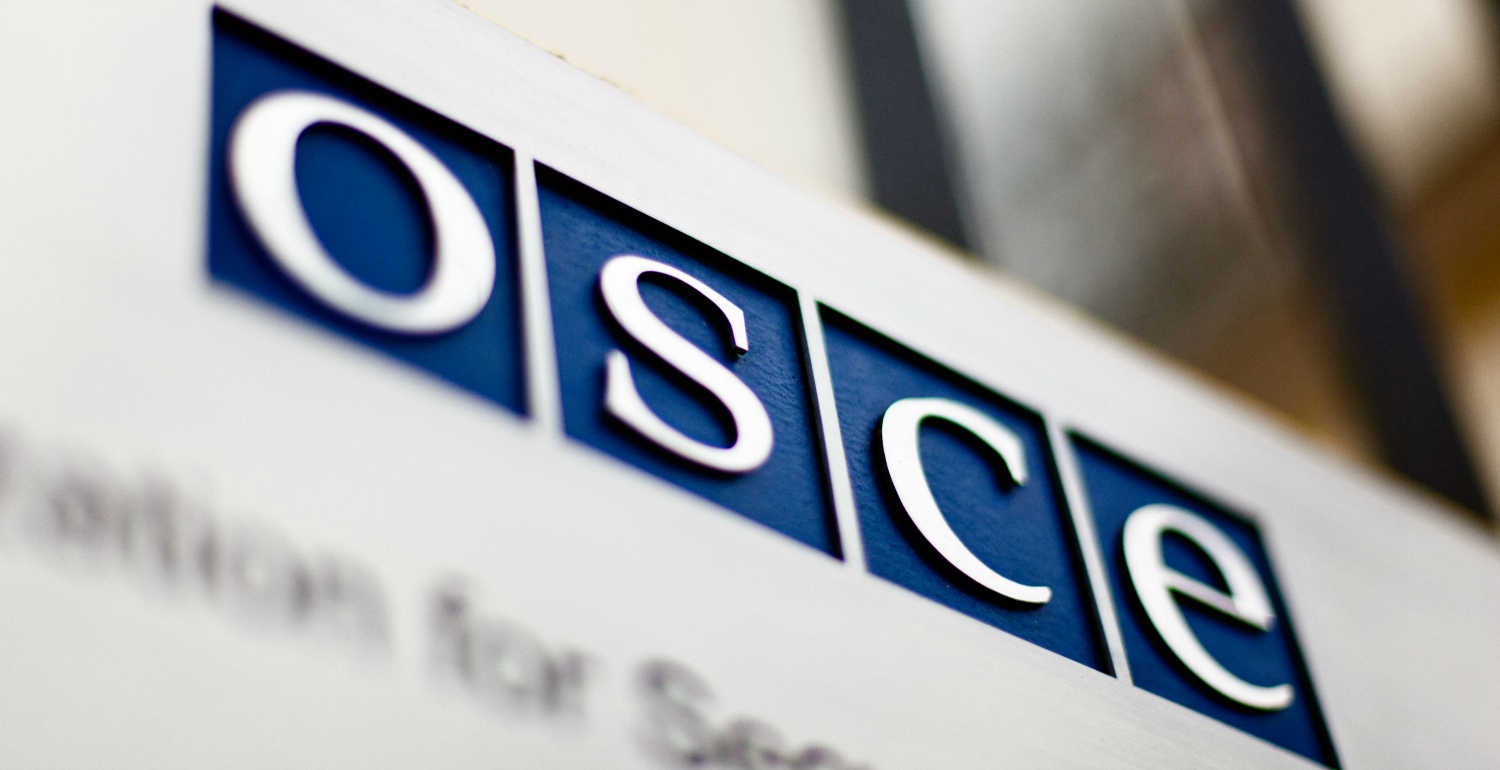On May 25-26, 2020, the Organization for Security and Cooperation in Europe (OSCE) held the year’s first Supplementary Human Dimension Meeting (SHDIM). The event, which attracted more than 950 participants from 57 countries, focused on addressing intolerance and discrimination and was the OSCE’s first public event hosted in an entirely virtual format.
During the event, representatives of governments, civil society, and OSCE institutions discussed the importance of immediate, robust, and coordinated responses to acts of scapegoating, racism, xenophobia, and anti-Semitism, especially during times of crisis. Participants underscored the need to reject hate speech both online and off, and shared best practices to prevent its escalation into violence. Recommendations centered on the shared goals of building inclusive and resilient societies that guarantee human rights for all.
In her closing remarks, Shannon Simrell, the U.S. Helsinki Commission Representative to the U.S. Mission to the OSCE in Vienna, highlighted recent commission engagement on combating intolerance and discrimination. Under the leadership of Chairman Rep. Alcee L. Hastings (FL-20), the Helsinki Commission’s ongoing commitment to building safe, equitable, and inclusive societies has been embodied by “On the Road to Inclusion,” a new interethnic, multicultural, inter-religious, and intergenerational initiative designed to build broad-based coalitions and crafts durable solutions, based on respect and meaningful engagement of all members of society. In addition, Helsinki Commission Ranking Member Senator Ben Cardin (MD), who also serves as the OSCE Parliamentary Assembly Special Representative for Anti-Semitism, Racism, and Intolerance, has directed funding to support OSCE’s comprehensive and multi-year Words into Action project, which develops inclusion handbooks for governments and communities.
The second Supplementary Human Dimension Meeting of 2020, scheduled for June 22-23, will focus on freedom of expression, press freedom, and access to information.
Closing Remarks by Shannon Simrell, U.S. Helsinki Commission Representative to the U.S. Mission to the OSCE
On behalf of the U.S. Helsinki Commission, I wish to congratulate the Chair in Office for organizing this historic event, thank the speakers for sharing your expertise, and recognize my colleagues and civil society representatives for your thoughtful engagement on these issues.
In the past two days, we have heard not only about the  importance of immediate and definitive responses to acts of hate and intolerance, but also the importance of a comprehensive and long-term approach to dismantle the social, economic, legislative, and technological roots of discrimination.
importance of immediate and definitive responses to acts of hate and intolerance, but also the importance of a comprehensive and long-term approach to dismantle the social, economic, legislative, and technological roots of discrimination.
Crises such as the COVID-19 pandemic lay bare the significant work that still needs to be done across the OSCE region to address prejudice, racism, xenophobia, anti-Semitism, and all forms of discrimination. Helsinki commitments must be equally realized by everyone among us. Without exception.
To ODIHR colleagues, thank you for your comprehensive approach to addressing hate crimes and intolerance while recognizing also the specific and varied challenges faced by various vulnerable groups, including Roma/Sinti, people of African descent, disabled, youth, women, and migrants and refugees.
In support of ODIHR’s vital role, I note that U.S. Senator Ben Cardin, in addition to his role as OSCEPA Special Representative for Anti-Semitism, Racism, and Intolerance, is proud to have directed funding to support phase two of the Words into Action project. In addition, the Commission’s commitment to building safe, equitable, and inclusive societies is further underscored by an initiative under the leadership of U.S. Helsinki Chairman Alcee Hastings, called “On the Road to Inclusion.” This interethnic, multicultural, inter-religious, and intergenerational initiative builds broad-based coalitions and crafts durable solutions, based on respect and meaningful engagement of all members of society.
I look forward to future events where we can continue not only our exploration of the hurdles, but an update on ways we are working to guarantee human rights for all.








